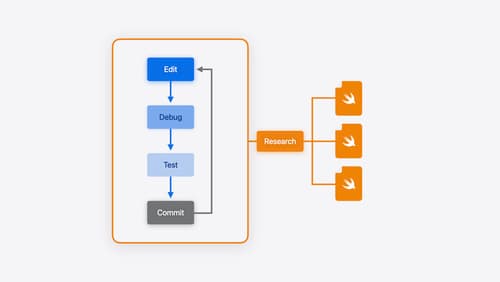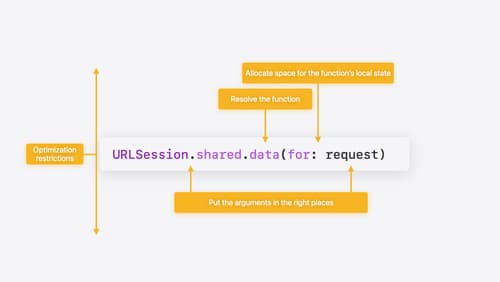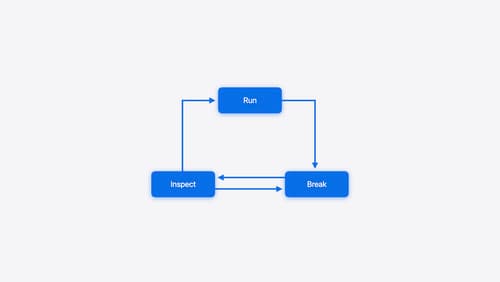how to print which thread is a func is on
Asked on 2024-08-07
1 search
To print which thread a function is on, you can use the os_log API for more structured logging instead of simple print statements. This approach provides more metadata, including thread information, which can be very useful for debugging.
Here's a brief overview of how you can achieve this:
- Use
os_logfor structured logging: This allows you to include metadata such as thread information in your logs. - Set breakpoints and use LLDB: You can set breakpoints in Xcode and use LLDB commands to inspect the thread information.
For more detailed information on debugging and logging, you can refer to the following sessions from WWDC:
- Xcode essentials (21:17): This session discusses using
os_logfor structured logging and how it can help you debug more effectively. - Run, Break, Inspect: Explore effective debugging in LLDB (11:40): This session covers using breakpoints and LLDB for debugging, which can help you inspect thread information.
By using these tools and techniques, you can effectively determine which thread a function is running on and improve your debugging process.

Xcode essentials
Edit, debug, commit, repeat. Explore the suite of tools in Xcode that help you iterate quickly when developing apps. Discover tips and tricks to help optimize and boost your development workflow.

Explore Swift performance
Discover how Swift balances abstraction and performance. Learn what elements of performance to consider and how the Swift optimizer affects them. Explore the different features of Swift and how they’re implemented to further understand the tradeoffs available that can impact performance.

Run, Break, Inspect: Explore effective debugging in LLDB
Learn how to use LLDB to explore and debug codebases. We’ll show you how to make the most of crashlogs and backtraces, and how to supercharge breakpoints with actions and complex stop conditions. We’ll also explore how the “p” command and the latest features in Swift 6 can enhance your debugging experience.
